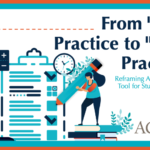Most institutions and most student development professionals likely agree on the need for and importance of professional development (PD) opportunities for employees. In fact, there are several higher education organizations that dedicate guidebooks, conferences, and blogs that discuss how to do PD well. However, despite this agreement, relatively few actually pursue PD due to the lack of time, resources, or offerings. Still others misunderstand the benefits PD, or are uninitiated or uncertain about pursuing PD. We’ll discuss some current findings and provide practical suggestions to get you started today!
The Rationale for Professional Development
The foundational rationale for PD is to grow in knowledge and practice to better contribute to our industry and consumers. In student affairs, we must navigate the unique governance within our university system, while maintaining a firm commitment to serve students well. To maintain fidelity to both tasks, we need development opportunities to gain knowledge in our field, which will inform the effectiveness of services delivered to students. As Christians, we are called towards excellence (Col. 3:23-24) working as the product of God’s workmanship (Eph. 2:10) to center our redemptive gifts and vocational calling. Thus, we cannot work with excellence if we’re not knowledgeable on current practices or understand today’s college students. As Dr. Michaela O’Donnell asserts in Make Work Matter, our work is an invitation to express our value to the world as image-bearers. This value proposition is misguided if we do not invest our time and attention towards our industry (higher education) and clients (students).
The Research Behind Professional Growth
Lack of career progress and lack of meaningful challenges in their roles are two of the main reasons employees leave their jobs (Kwan et al., 2020). What does this mean for higher education? Although a recent ACSD survey indicated our members are not leaving the field to the same degree as professionals in pluralistic contexts, we can learn from the challenges these institutions are facing (and hopefully prevent it from happening in Christian higher ed). In order to retain our excellent staff teams, student development leaders need to devote more time to PD. When we do, we communicate the reality that we value our people and want to see them grow. This, in turn, generates better workplace satisfaction and effectiveness. Additionally, campus leaders must articulate meaningful work for student affairs practitioners, provide professional and organizational advancement opportunities, and (although it sounds rather transactional) understand the return on investment PD provides. In addition, research shows that when PD is done well, it offers employees numerous benefits such as acquiring new skills, boosts in confidence, leadership development, expanded professional networks, and even career advancement.
Why do we Neglect Professional Development?
So, why do we neglect professional development opportunities? For some, PD has not been substantive, engaging, or meaningful in practice. There are instances of failed rope trick gimmicks, or disorganized programs that fail to account for cultural, financial, or other central issues. Or, for some professionals, we passively wait for our supervisors or institutional leaders to provide development opportunities; thus, it may never occur. Although it is ideal that those in supervisory role take the lead on PD, I want to empower you to seek ownership and agency of your own professional growth as well. A common approach to PD is to travel to national conferences, off-site programs, or enroll in courses which require time and money that may be scarce at many institutions. While these options can be useful, I want to provide other options for consideration. Once we can overcome the mental hurdle of pursuing PD opportunities, there are many creative and feasible ways to get started.
Practical Suggestions to Get Started
So, you’re convinced that you may need to step a bit out of your comfort zone and begin investigating PD opportunities. Or if you’re facing financial constraints or availability impediment, I am hopeful these suggestions will help you get started wherever you are in your professional journey.
- Consider “in-house” opportunities such as a book study, collaborative program, or community project. I’d recommend connecting with engaged faculty across the university to draw diverse perspectives and to build your internal network. Last year, I was invited to join the student life team at my university in a book study centered on racial reconciliation, and the dialogue with colleagues was enriching and immensely formative. Step out of your comfort zone and contact faculty, staff, and administrators to view this shared endeavor as a growth opportunity. Block off agreed upon times on your calendar and cultivate shared ownership by rotating participants to take lead on discussions for each gathering. Book topics can be dependent on collective interest, so poll the group for suggestions and decide together.
- Investigate local opportunities to get involved in your community. Partnering with your Chamber of Commerce, non-profits and neighborhood schools, or local businesses, can expand your network and empower you to better serve your neighbors. Cities often benefit economically and culturally when they are host to one or more universities in town; you can use this connection to your advantage. I’ve had the privilege of serving with the Chamber’s Leadership Cleveland as a program graduate and cohort leader the last four years and it has informed me about community needs and key stakeholders in my city. I’ve grown my professional network by collaborating with numerous business and community leaders all of whom have a vested interest in making our city better.
- Cultivate partnerships with nearby colleges and attend regional gatherings. Connecting with faculty and administrators from other institutions is invaluable. In my experience, when I’ve inquired about specific programs or operational structures at nearby colleges, I was able to refine our campus’ approach to student services, or begin a new initiative based on an existing (and effective) model. In 2020, we began the Work-study Assistantship Program (WRAP) to organically grow undergraduate research opportunities guided by faculty mentors; this concept was discovered after engaging with nearby University of Tennessee, Chattanooga and other regional universities that offered a similar program. We should view other universities as cooperatives rather than competition. The Appalachian College Association (ACA) is our regional consortium of non-profit, liberal arts colleges that facilitates institutional collaboration, PD opportunities, and shared resources for students, faculty, and administrators. Involvement with these regional and cooperative groups is a great way to advance in your career and to grow your professional network.
- Lastly, consider attending national conferences such as ACSD, NASPA, NAICU, and other professional gatherings. Or you can elect to enroll in a certification-based program such as financial coaching, diversity, equity and inclusion training, leadership development, or personality assessments certification (such as MBTI, Strengths, Enneagram, etc.). Yes, these opportunities are costly, but you may consider earmarking your budget lines by petitioning your supervisor on the value and importance of PD. An investment in these opportunities is an investment in your professional growth and ongoing contribution to the university. If you had funds to attend only one conference each year, I recommend selecting the conference that is closest to your location to mitigate travel costs. If you can only select one training to pursue, make a case for the option that is most directly connected to your work.
As you navigate the value of investing time and effort towards professional development, I hope it will strengthen your commitment to higher education service and knowledge of student development strategies.
References
Kwan, A., et al. (2020). Deloitte University Press. Talent 2020: Surveying the Talent Paradox from the Employee Perspective. https://www2.deloitte.com/us/en/insights/topics/talent/talent-2020-surveying-the-talent-paradox-from-the-employee-perspective.html?id=us:el:dc:redirect
Editor’s Note: As you reflect on the value, purpose, and strategies for professional development, we encourage all readers to consider joining us for the annual ACSD Conference at the University of Mary Hardin-Baylor from June 3-6 in Belton, TX. Learn more here: ACSD Conference 2024.







